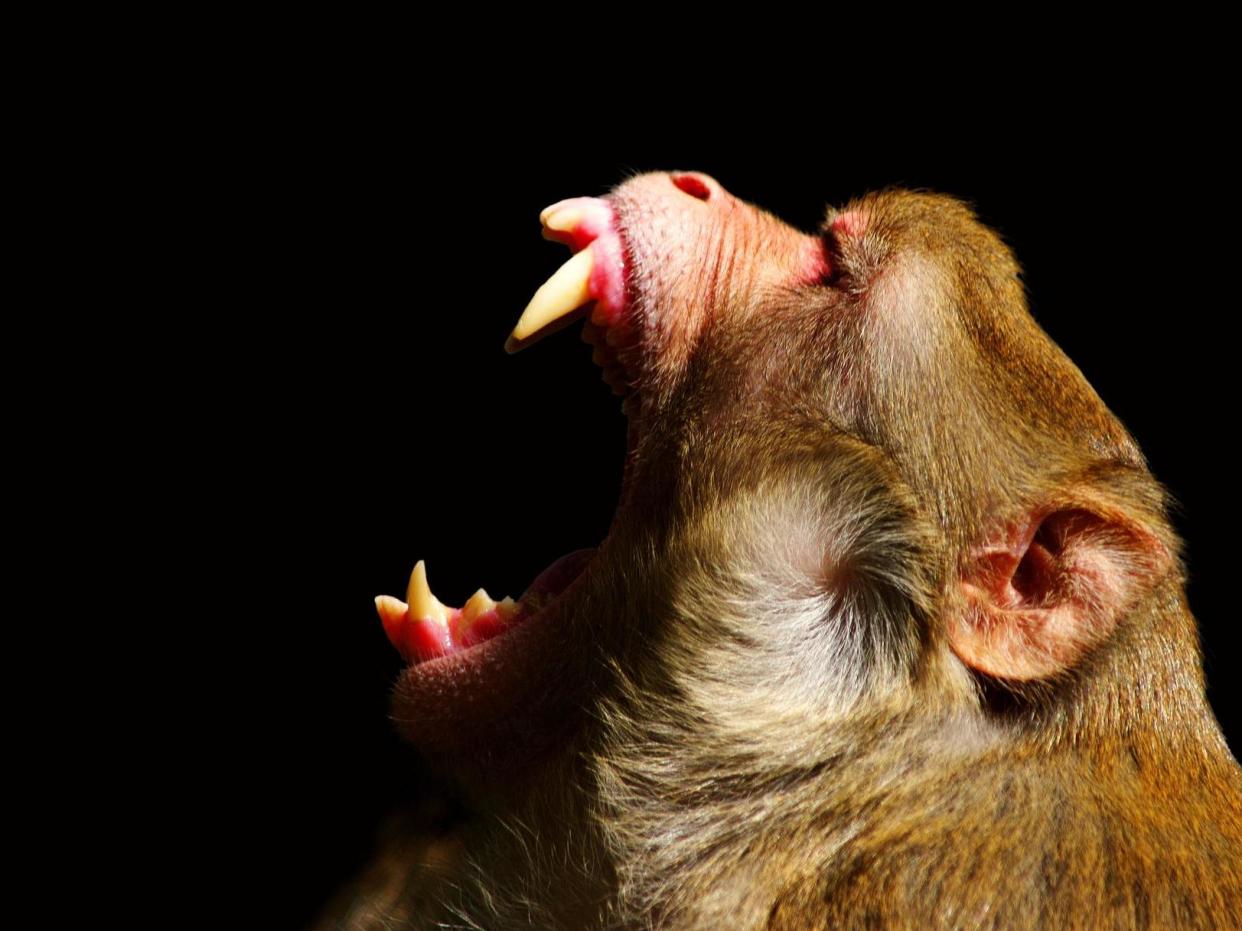'It's a lose-lose situation': Herpes-infected monkeys swarming Florida trigger backlash over plans to purge them

Experts are struggling to respond to an invasive species of herpes-infected monkeys roaming around Florida after a spate of sightings raised fears the primate population in the state is spiralling out of control.
Just six monkeys arrived in Florida as tourist attractions in the 1930s but the animals have since spread and multiplied to an estimated population of between 550 and 600 around Silver Springs State Park.
Although researchers are worried about the herpes B virus they carry and the potential for them to harm other species, park officials have avoided controlling numbers of the rhesus macaque species, which has become a beloved tourist highlight in the state.
“People feel really emotionally connected to these animals,” Jane Anderson, an assistant professor of research at the Caesar Kleberg Wildlife Research Institute, told The Washington Post.
“And that makes it much harder to convey that we need to implement population management than [for] an animal that's less cute and cuddly”.
Ms Anderson, who has studied the growth of the monkeys and estimated their population size, has expressed concerns that further growth could harm birds in the area, such as qualls.
In past incidents, rhesus macaques have wreaked havoc on new habitats, such as in Puerto Rico, where studies showed their introduction in the 1960s destroyed seabird populations.
However, it may soon become impossible to ignore the growing problem as researchers estimate that by 2022, the monkey population will have doubled.
“I understand why they don't want to address the issue. It's a lose-lose situation,” Steve Johnson, a University of Florida professor of wildlife ecology and conservation who co-authored the research, told USA Today.
“But if they do nothing, they are potentially opening up a barrel of monkeys, so to speak.”
Mr Johnson noted that officials have struggled to control the population due to public support for the animals, who have captured the hearts of visitors to the state.
“It's not an issue if it's catching pythons. No one cares about snakes. When it's a furry, charismatic animal, it makes it different.”
In the past, monkeys in the area have been trapped and sold for biomedical research over concerns about them plundering birds’ nest and potentially passing herpes on to humans.
But that solution also received backlash from animal rights groups concerned about the monkeys’ welfare.
“It is a tragedy that wild monkeys are torn from their families and forest homes and sold to research and testing laboratories,” one group said in 2013, as reported by the local Ocala Star-Banner newspaper.
Although the chances of humans being infected by the monkeys are slim, a study published in a journal of the US Centres for Disease Control and Prevention (CDC) has described herpes B as a “public health concern” and concluded up to 30 per cent of the park’s macaques shed the virus in their saliva, urine and faeces.
“Hundreds of bites and scratches occur every year in monkey facilities in the United States, but people rarely get infected with B virus,” the CDC said on its website.
Park officials have resorted to warning tourists to keep their distance from the monkeys, instead of actively controlling the population, amid concerns about aggression from the animals towards visitors.
“We tell people not to approach them, not to feed them, because we want people to stay safe,” Craig Littauer, a park services specialist, told The Post.
However, despite concerns about the population growth, the monkeys remain a popular tourist attraction.
“First thing everyone asks about is the monkeys,” Nick Bozman, who runs tours transporting visitors along the park’s Silver River, told the Ocala Star-Banner.
Nevertheless, he admitted the animals were “not supposed to be here”.
“It's a double-edged sword,” he told the newspaper.
Read more
Wild monkeys carrying disease threaten Floridians
Trump to be protected by monkey police on India visit
‘New species of monkey’ discovered in Amazon rainforest
Three dolphins found shot and killed off Florida coast
Florida could use drones to fight pythons
Frozen iguanas to fall from trees in Florida, forecasters warn


